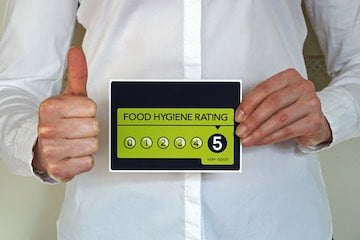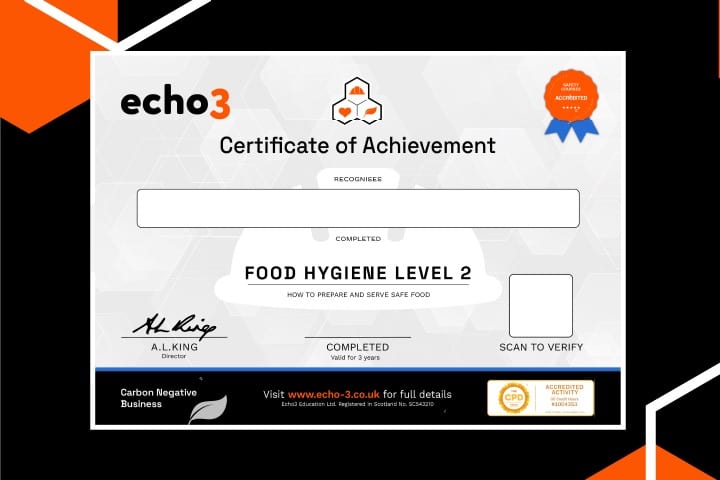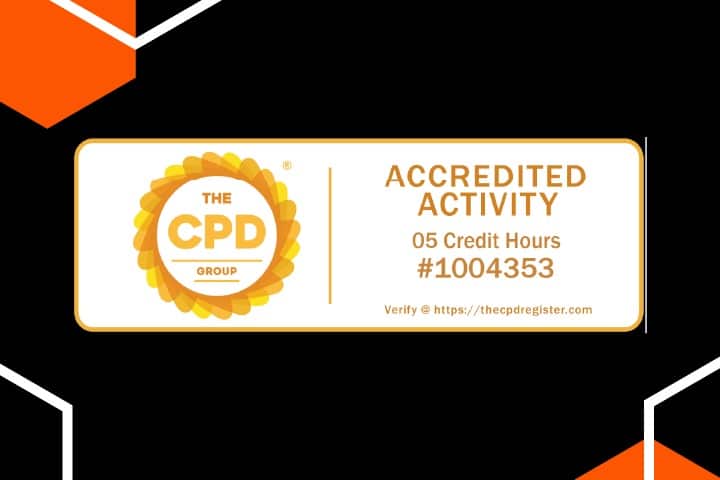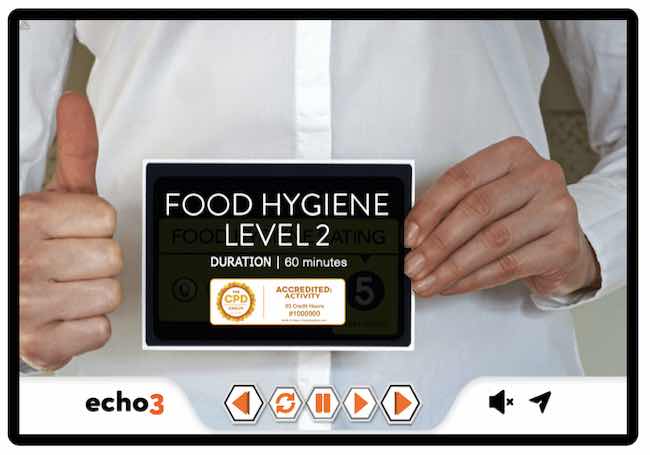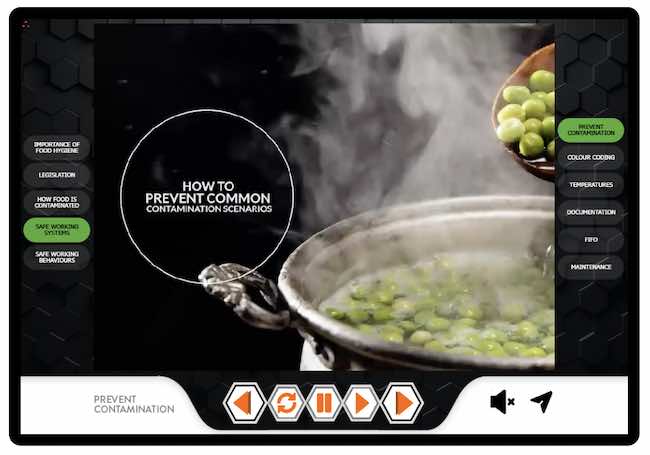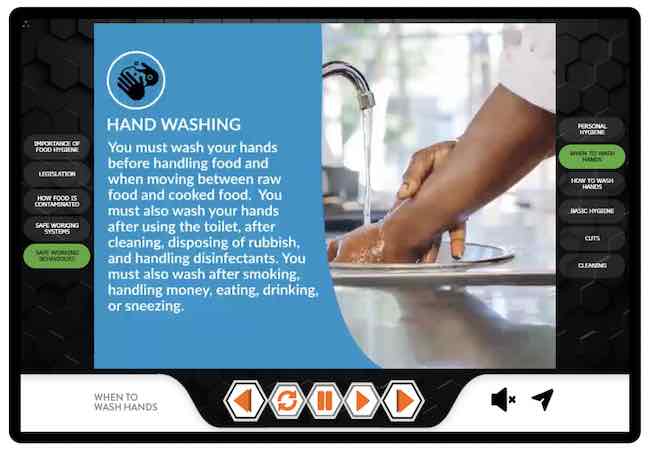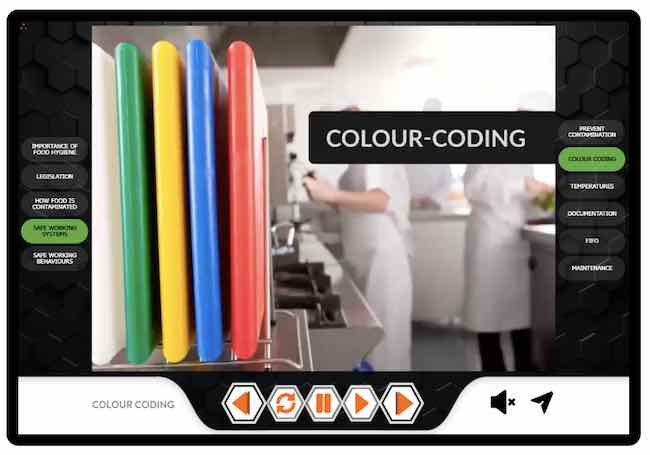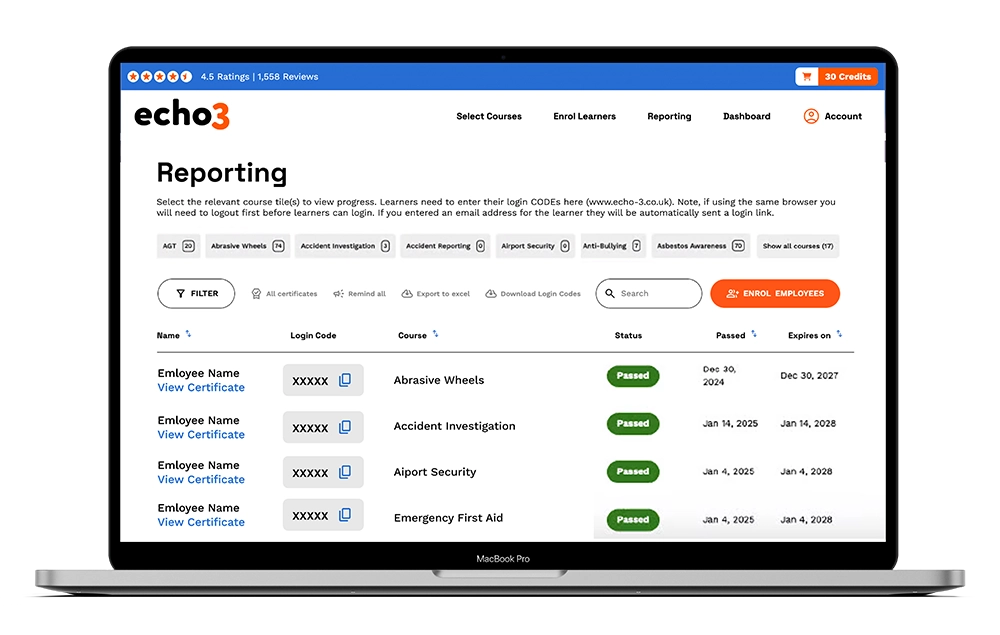Food Hygiene Level 2 Course
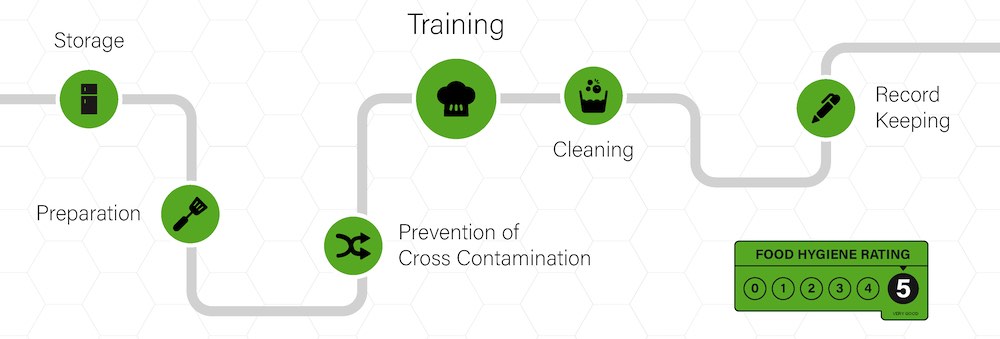
Formally referred to as the ‘Basic Food Hygiene Certificate’, this online Level 2 Food Hygiene course meets your legal requirement to ensure anyone working with or handling food has appropriate food hygiene training.
Everyone in your organisation working where food is present must understand the importance of good food hygiene and the dangers of poor hygiene practices.
Completing this training course gives an understanding of the importance of good food hygiene and the key regulatory standards. Giving a strong understanding of food safety principles, learners will be able to work safely and effectively, protecting you, your customers/service users, and your business reputation.
This concise, clear & CPD-accredited Food Hygiene Level 2 course is delivered fully online. Designed to be accessible for all levels of staff, the course offers opportunity to either repeat content to anchor important learning or skip non-critical content as appropriate depending on specific role. Optimising available time, this approach ensures that course content can be individually tailored to ensure it remains relevant, engaging, and interesting.
With a verifiable, CPD-accredited Level 2 Food Hygiene certificate emailed to each learner on completion, the training offers you and your business with evidence of your understanding of food hygiene.
For those who manage staff the Level 3 Food Hygiene course is more appropriate.
Course Content
UNIT 1 | Why is food safety so important?
This opening unit explores the commercial and moral responsibilities involved in providing safe food to consumers. It introduces the topic of food poisoning—what it is, the different types, high-risk groups, and the potential impact on health and business.
Understanding these foundations is essential, as it prepares learners to approach the following units with a clear awareness of the serious consequences that can result from poor food hygiene practices.
UNIT 2 | HACCP
In all UK and European food businesses, safety management systems must be based on the principles of HACCP.
This brief section provides an introductory overview of HACCP to support general understanding. If your role involves implementing or managing food safety systems, further role-specific HACCP training may be required.
UNIT 3 | LEGISLATION
This unit outlines the key legal requirements that food handlers must understand. It focuses on the individual responsibilities of employees to uphold high standards of food hygiene and comply with current food safety regulations.
UNIT 4 | MICRO-ORGANISMS
Unit 4 introduces the micro-organisms commonly found in food and explains how they live and multiply. This essential knowledge helps learners understand how to prevent food spoilage and reduce the risk of food poisoning caused by harmful bacteria, viruses, moulds, and yeasts.
UNIT 5 | CONTAMINATION HAZARDS AND CONTROLS
This unit explores the different types of contamination hazards and how they can be effectively controlled. Learners will gain an understanding of the sources and routes of contamination—including allergenic, physical, and chemical hazards—and the measures needed to prevent them.
UNIT 6 | CLEANING & CONTAMINATION
In this final unit, learners gain a clear understanding of the specific cleaning and hygiene practices required to ensure that only safe, uncontaminated food is served to consumers.
UNIT 7 | QUIZ
A 15-question multiple-choice quiz assesses your understanding of the key practices required to maintain high food hygiene standards. A score of 80% or higher is needed to receive your completion certificate. The quiz can be retaken if necessary.
Food Hygiene Level 2 Certificate
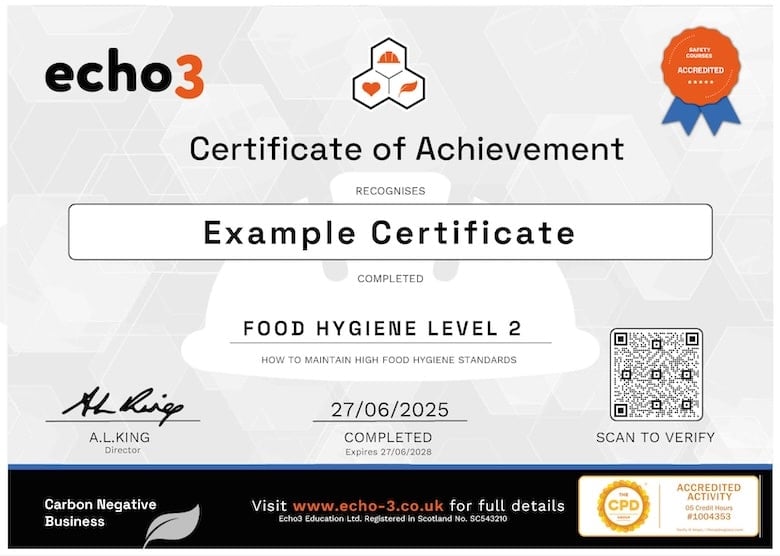
Download and Print Your Certificate
- Developed by qualified health and safety professionals
- Accredited by CPD – learn more about CPD here
- Last Updated January 2025
- To gain the certificate you must complete the assessment which involves 15 questions.
- The online Food Hygiene Level 2 certificate is valid for 3 years.
Course Preview
Echo3 courses include engaging motion-graphic video content, with full english subtitles
Reviews
How to Get Certified in 3 Steps
Individual Learners

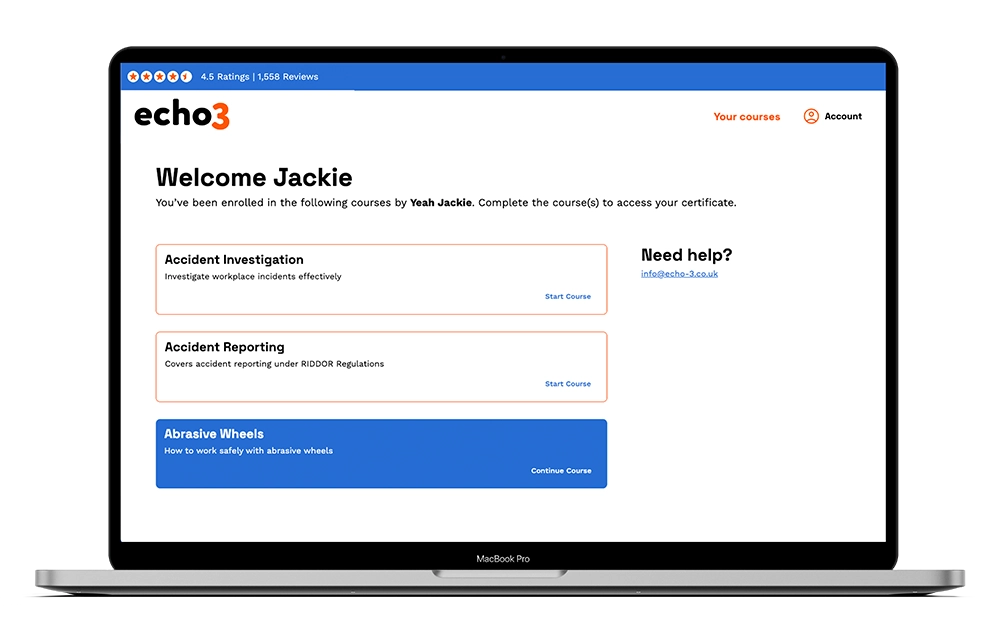
Benefits for Individuals
-
Engaging video-based content
-
Learner dashboard included
-
Instant access after payment
-
Free course retakes
-
Shareable digital certificate
 QR Code Certificate
QR Code Certificate




Bulk Buying Discounts
What are the Food Hygiene Level 2 learning outcomes?
On completion of this Level 2 Food Hygiene online course, learners will be able to:
- Define the legal responsibilities of a food handler.
- Understand the risks poor food safety can pose to your customers.
- Identify types of food contamination.
- Explain best practice in maintaining high food safety standards.
- Understand the HACCP principles.
- Describe the importance of personal hygiene.
- Define the key elements of effective cleaning.
- Identify and explain steps to control cross-contamination.
What is the objective of Food Hygiene Level 2 training?
The objective of online Food Hygiene Level 2 training inlaces;
- Increasing individual competence through provision of the key knowledge needed to handle food safely.
- Help ensure consumers always receive food that is safe to eat.
- Providing the learner with an understanding of relevant UK regulations covering food hygiene and safety.
- Providing operators with a quality training solution to create a safer work place.
- Ensuring businesses can demonstrate compliance and meet their legal duties in full, helping achieve a 5-star Food Hygiene rating.
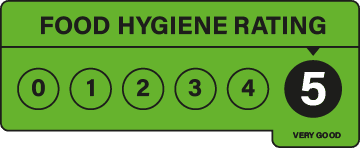
Who needs level 2 Food Hygiene training?
Legal obligations have come predominately from EU Regulation 852/2004; following Brexit these same standards have been incorporated as part of UK law.
Local Authorities are tasked with enforcing this law, and employ specialist officers who have the power to fine or close businesses.
In England, Wales and NI, the Food Standards Agency role is to provide guidance for local authorities. In Scotland this function is provided by Food Standards Scotland.
Both agencies run food hygiene information schemes. Being able to demonstrate that staff have achieved a Level 2 Food Hygiene qualification will help your business achieve a 5-star rating.
What is the law around food hygiene?
Legal obligations come predominately from EU Regulation 852/2004 which since Brexit is now part of UK law.
Local authorities are tasked with enforcing this law and have the power to fine or close businesses.
In England, Wales and NI the Food Standards Agency role is to provide guidance for local authorities. In Scotland this function is provided by Food Standards Scotland.
Both agencies run food hygiene information schemes. Being able to demonstrate that your staff have achieved a Level 2 Food Hygiene qualification will help you achieve a 5-star rating.
Who should take Level 2 Food Hygiene training?
The Food Hygiene Course Level 2 is aimed at anyone who works in a food preparation area or may handle food. This includes a wide range of roles, eg. chefs / food preparation and service staff working in restaurants, bars, coffee shops, cafes, and the wide range of other catering businesses, whether public or commercial.
For those staff responsible for the management or supervision of food handlers, or overseeing teams working in an environment where food may be prepared or handled, the Level 3 Food Hygiene course more appropriate.
Is this Level 2 Food Hygiene course accepted?
Yes, this online Food Hygiene Level 2 course is fully accredited by the CPD Group, and meets the training level that Environmental Health Officers (EHOs) will expect your staff to achieve. The course also provides certificates of completion so you can maintain appropriate training records to demonstrate your compliance.






